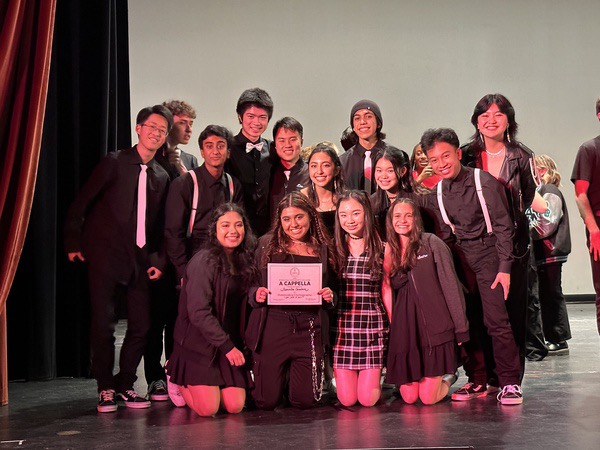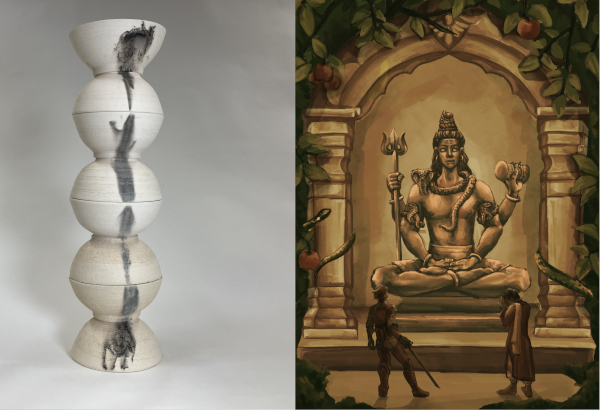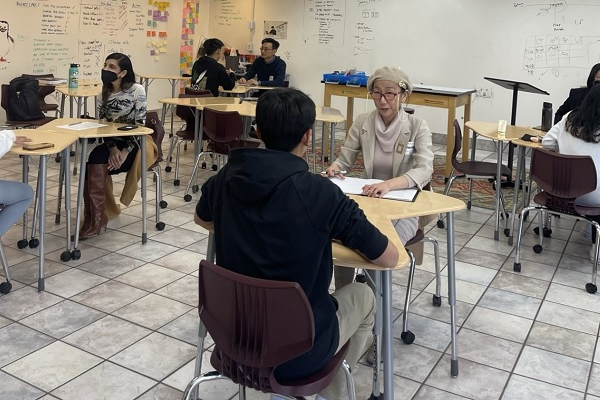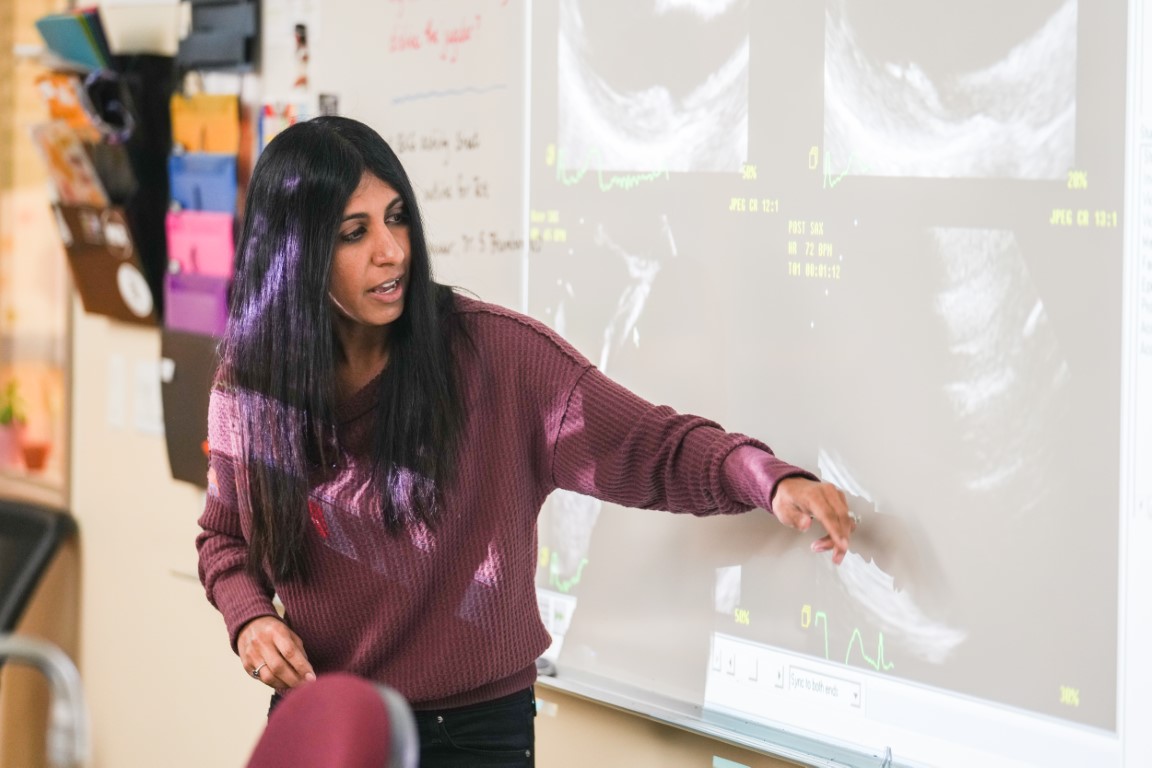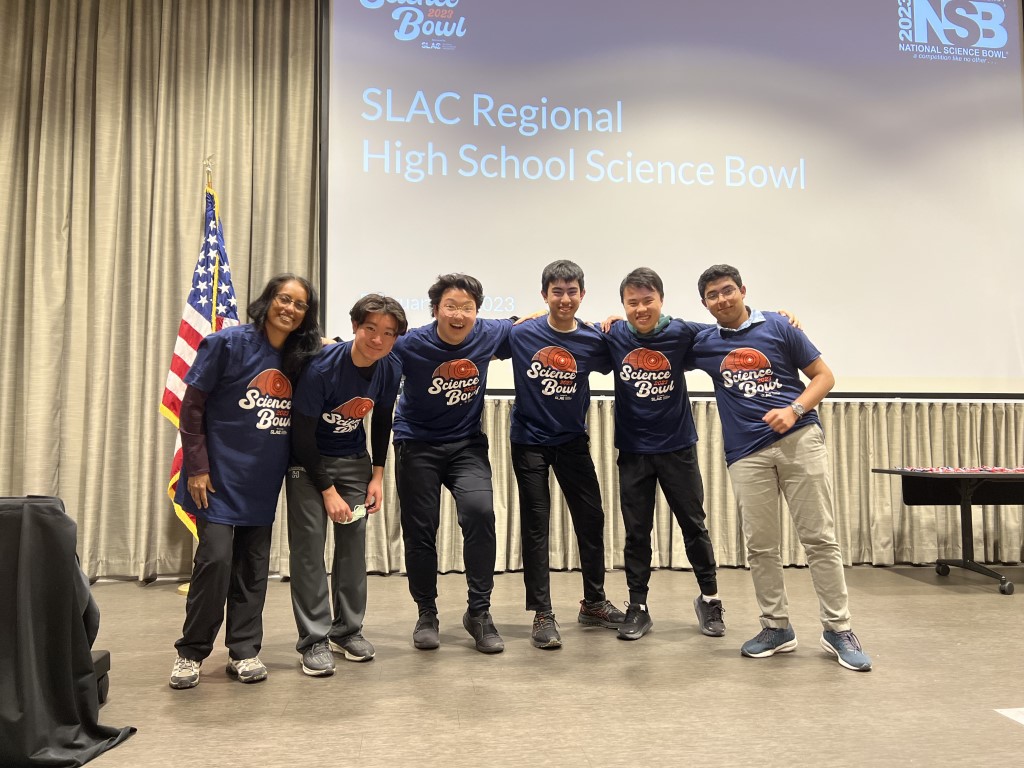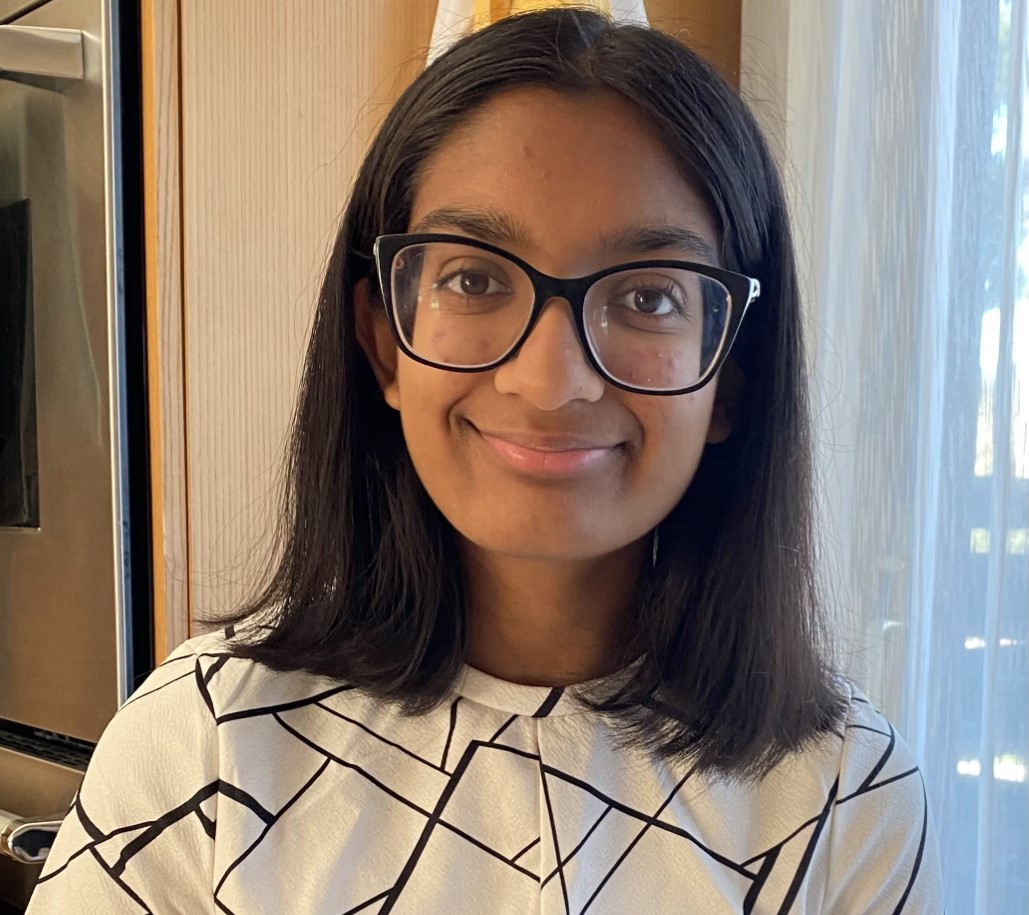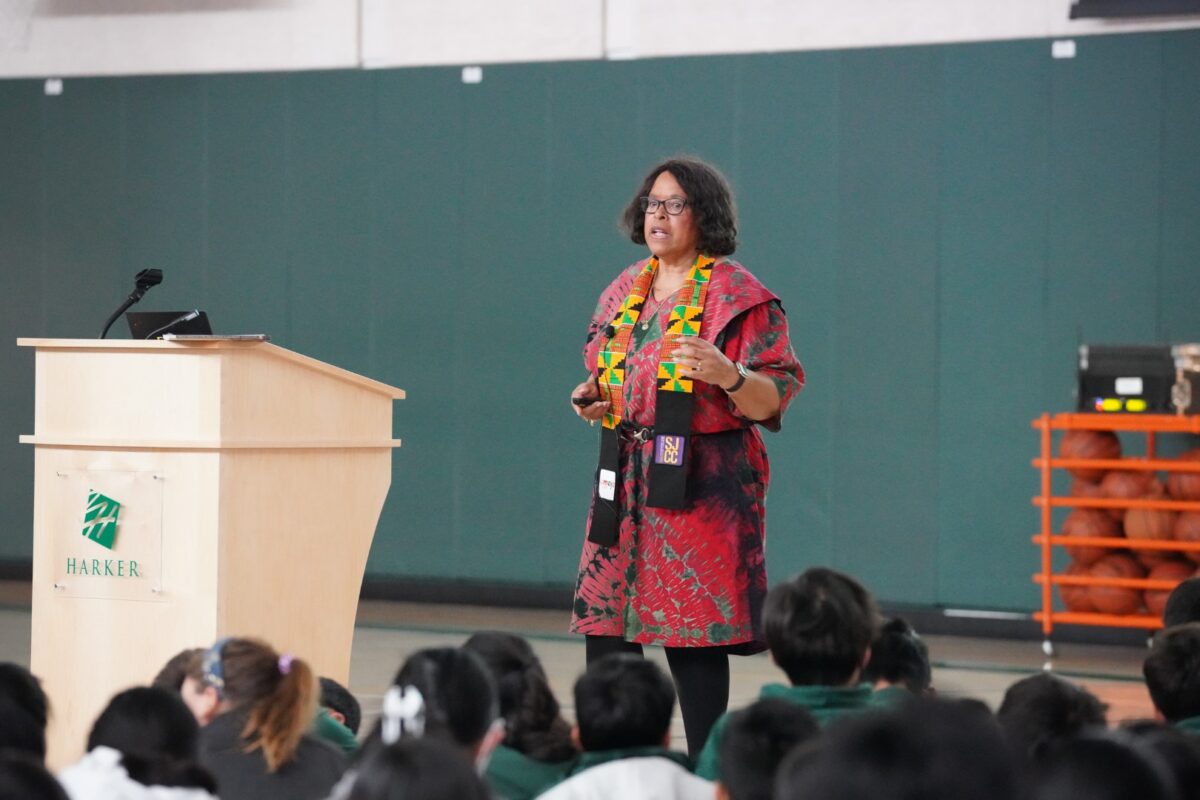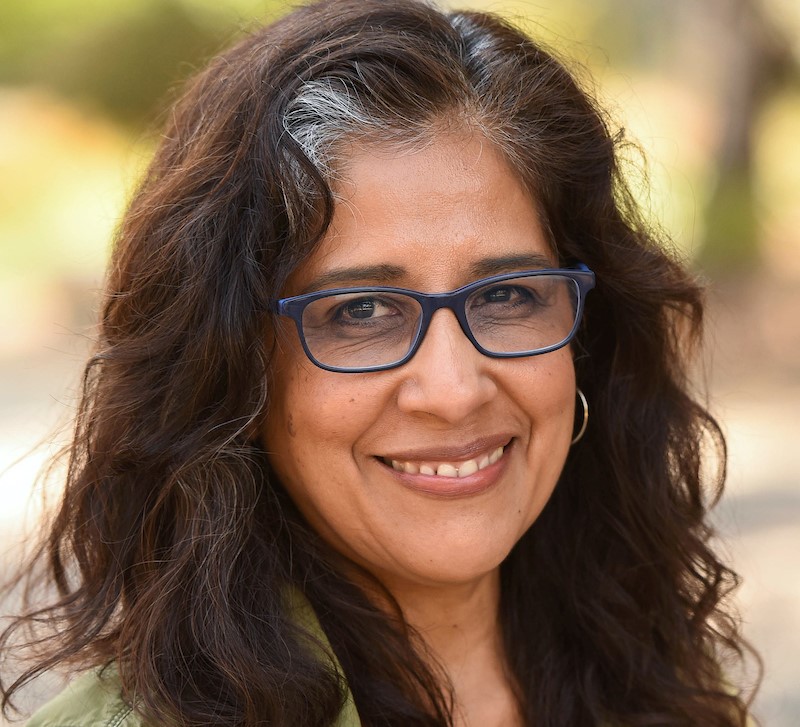The upper school’s show choir group placed fourth in the International Competition of High School A Capella’s west region.
express
Student art to be featured in ArtNow exhibition
Pieces by senior Claire Kampmeier and junior Maya Cheshire have been selected to be featured in the 2023 ArtNow exhibit hosted by New Museum Los Gatos.
CareerConnect helps students with job interview skills
CareerConnect hosted a mock interview event to help individuals improve their interviewing skills.
Alum cardiologist visits upper school for guest lecture
Harker students were given a guest lecture by cardiologist Shalini Bhambani ’02, who gave insight into her profession with a series of case studies.
Students receive 256 awards in Scholastic Art & Writing Awards
Harker middle and upper school students received 256 regional awards in the 2023 Scholastic Art and Writing Awards, receiving 107 awards for art and 149 for literature.
Harker takes second place at DOE Regional Science Bowl
Harker students Jeremy Ko, Ethan Liu, Jason Shim, Rohan Bhowmik and Arnav Swaroop took second place at the U.S. Department of Energy Regional Science Bowl, held at the SLAC National Accelerator Laboratory at Stanford University.
Junior receives honorable mention in NYT Student Review Contest
Junior Trisha Iyer received an honorable mention for her review of an exhibit at the Legion of Honor museum in San Francisco.
Assembly covers Black history in Santa Clara County
Last week, a special middle school assembly featured author and historian Jan Batiste Adkins, who shared the history of African Americans in the Bay Area and Santa Clara County area.
Speech and debate coach inducted into Gold Key Society
Speech and debate coach Greg Achten was inducted into the Emory University Barkley Forum’s Gold Key Society
Art teacher receives prestigious Eureka Fellowship
Longtime upper school art teacher Pilar Agüero-Esparza was named one of the 12 most recent Bay Area artists to join the Fleischhacker Foundation’s Eureka Fellowship Program.
